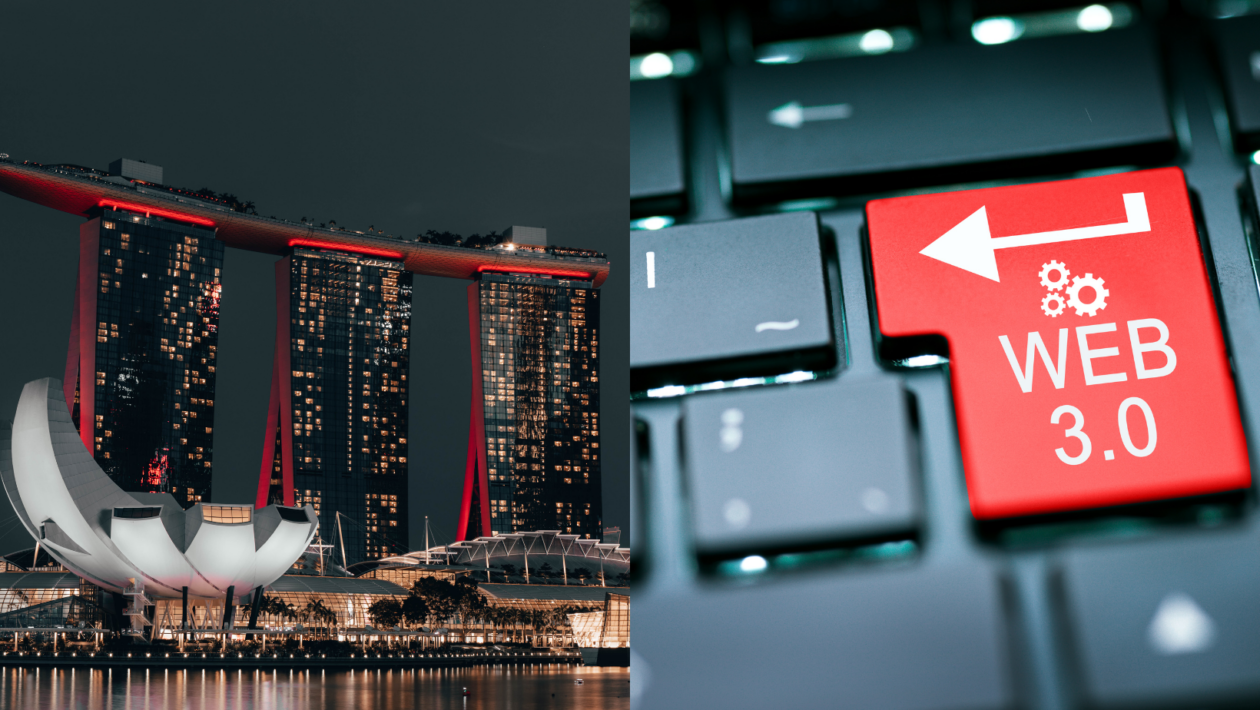Historically anchored as a pivotal node in the global financial network, Singapore is now at the forefront of the Web3 revolution.
Its legacy as one of the centers of global finance, combined with its proactive embrace of decentralized systems, not only accentuates Singapore’s strategic significance in the evolving digital era but also suggests that the city-state will be the linchpin in the global shift towards Web3 — the next iteration of the internet powered by blockchain.
This isn’t just about digital currencies; it’s a paradigm shift in value transfer and systemic architecture that Singapore is poised to champion. And Singapore’s regulatory strategies play a pivotal role in shaping the nation’s leadership in Web3.
Balancing innovation and stability
Singapore’s approach to supporting the crypto industry is a masterclass in strategic balance. While the nation actively promotes digital asset innovation, it remains eagle-eyed against unchecked crypto speculation. This dual strategy crafts an ecosystem that’s both nurturing for crypto ventures and a bulwark for investor protection.
This balance is evident in how Singapore has become an attractive market for firms eager to expand and grow. Firms are making strides into Singapore, and its reputation as a dynamic digital market has solidified its unique position in global rankings as a top crypto hub. Singapore stands as a sterling example for countries navigating the intricate maze of digital assets. The allure isn’t just theoretical or based on rankings alone; real-world examples abound.
The robust nature of Singapore’s regulatory framework has made it a prime destination for major crypto entities. Case in point: Gemini’s expansion into the region, underscoring the nation’s appeal as a crypto-friendly ecosystem, alongside market maker Wintermute who is relocating 4% of its staff to the nation to focus on Asia.
Gemini has identified the Asia-Pacific (APAC) region as the driving force behind the “next wave of growth for crypto.” In a bid to establish a stronger foothold outside the U.S., especially given the increased American regulatory actions against crypto exchanges, Gemini has chosen Singapore as its hub for APAC operations, with plans to bolster its headcount in Singapore to over 100 in the coming year. This move underscores Singapore’s appeal as a supportive ecosystem for crypto.
Singapore sends a strong message for growth opportunities
Gemini’s move, amongst others heading East, is indicative of a broader trend: firms are increasingly recognizing Singapore as a jurisdiction that offers regulatory clarity and support, abundant partnership opportunities, and a rich talent pool, especially in the Web3, decentralized finance, blockchain and crypto space.
Singapore’s vision of crypto is expansive. Recognizing the transformative potential of stablecoins, the nation is spearheading initiatives to weave them into the mainstream financial fabric, aiming to slash transaction costs and craft a seamless conduit between traditional banking and the digital asset universe.
The F1 Singapore Grand Prix event, with its crypto backers, exemplifies Singapore’s ambition to mainstream digital assets. Such initiatives spotlight the nation’s forward-thinking approach, hinting at a future where digital assets and mainstream events dance in tandem.
Further bolstering this trend is the Monetary Authority of Singapore’s (MAS) funding commitment for fintech innovation. MAS pledged up to S$150 million (about US$110 million) over three years under the renewed Financial Sector Technology and Innovation Scheme (FSTI 3.0), which includes a route to “support innovative fintech solutions arising from emerging technologies such as Web 3.0.” This sends a strong signal of their intent to partner with the industry and nurture “innovative fintech solutions arising from emerging technologies such as Web 3.0.”
MAS also recently partnered with the Bank of International Settlements (BIS) to issue a framework for “tokenization and institutional grade DeFi protocols.” MAS released a report focusing on the viability of DeFi applications and ways to tokenize real-world assets without risking global financial stability and integrity.
Through open calls for innovative technologies and partnerships, as exemplified by BIS, MAS is further harnessing Singapore’s appeal as a magnet for the blockchain and crypto industry.
Redefining the crypto narrative
As the crypto landscape evolves, so do the threats. Safeguarding digital assets and transactions is paramount. The industry must remain vigilant against emerging cyber threats, and Singapore’s adaptability isn’t just about tech prowess but also regulatory dexterity. Firms across Web3, DeFi, blockchain and crypto view Singapore as a growth-harnessing region, a platform to scale their technology and forge partnerships.
While Singapore has set a gold standard in crypto regulation, the dynamic nature of digital assets means that regulatory frameworks must continuously adapt. Striking a balance between fostering innovation and ensuring market stability will always be a tightrope walk.
This vision of a harmonized financial future, where old systems are integrated with new innovations, is what sets Singapore apart and positions it at the vanguard of global digital transformation. As major fintech entities like Gemini recognize Singapore’s crypto-friendly ecosystem and establish their presence, the nation’s forward-thinking stance becomes even more pronounced.
In contrast, the U.S., once a champion of technological advancement, is now grappling with regulatory challenges, particularly with crypto giants like Coinbase and Binance. Its approach to crypto regulation risks alienating a sector brimming with potential — a sector that promises to revolutionize global finance.
As the U.S. treads cautiously, perhaps overly so, Singapore’s proactive and embracing attitude toward the blockchain and crypto industry promises a future that’s not just about riding the Web3 wave. It’s about ensuring every wave is surfed with precision, safety and vision.

